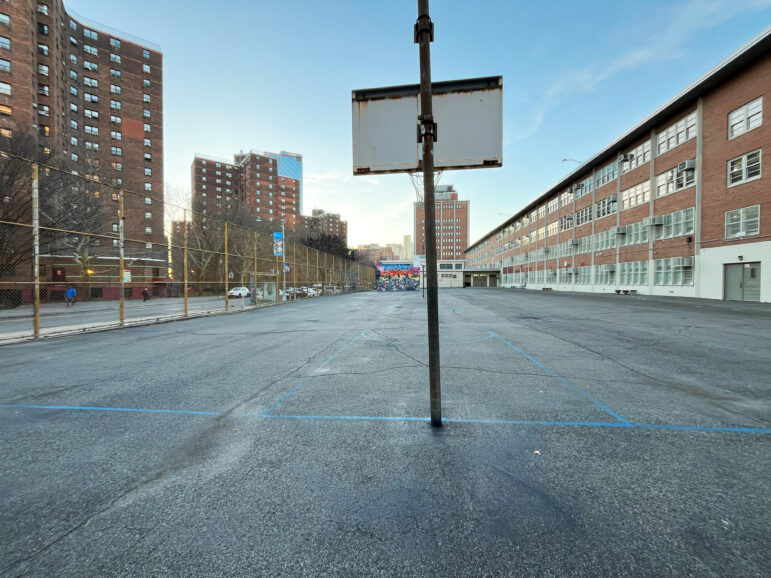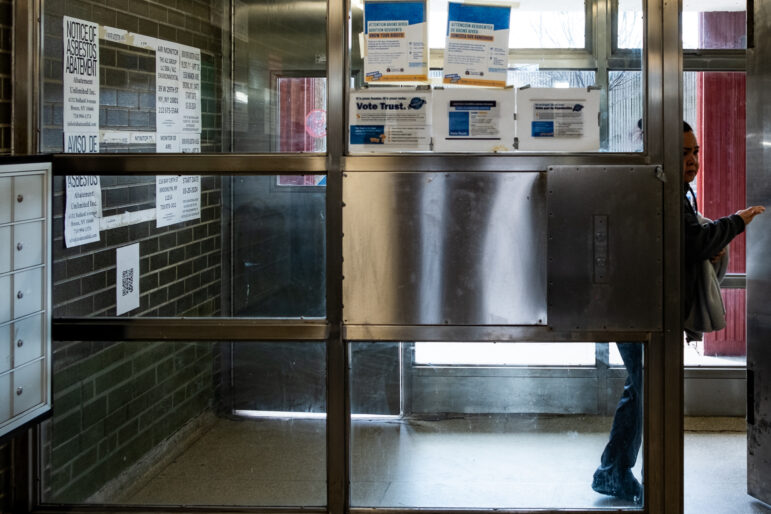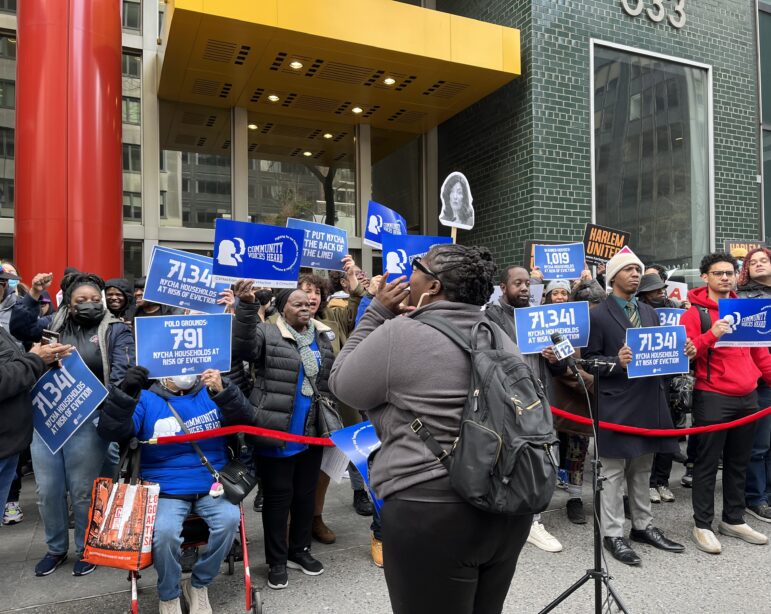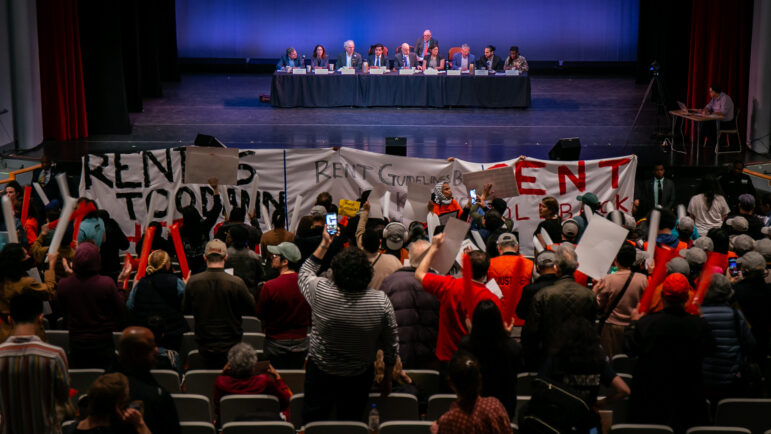“No blurry scan of a letter can ever replace homemade gifts from children or physically holding the familiar handwriting of a loved one. This cruel, misguided approach to curbing overdoses will only further isolate incarcerated New Yorkers this holiday season.”
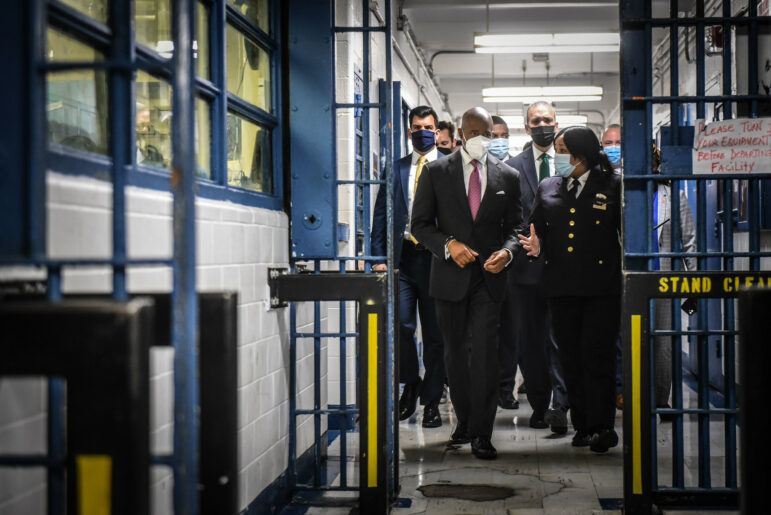
Michael Appleton/Mayoral Photography Office
Mayor Eric Adams on a tour of Rikers Island in June 2022.Just in time for the holidays, the New York City Department of Corrections (DOC) is prohibiting families and friends from sending letters to their loved ones. Last month, the DOC announced a plan to digitize all mail and potentially only allow packages from approved vendors to incarcerated people at Rikers Island and other city jails. Joining a similar policy in the state correctional system, the proposal reflects an alarming trend in both the city and state toward the digital surveillance of incarcerated New Yorkers behind bars and their friends and family on the outside.
The rationale behind the plan, announced by DOC Commissioner Louis A. Molina, conveniently displaces the responsibility for contraband flowing into city jails on the social and familial networks of incarcerated people, rather than confronting the complicity and corruption of jail staff. The DOC presented the proposal as a way to prevent books and letters soaked in fentanyl and other drugs from entering jails, but does nothing to address well-documented drug- and weapon-smuggling by corrections officers.
Digitizing mail and targeting loved ones is not an adequate solution to the very real problem of overdoses in jails around the country. DOC has not provided evidence that any of the overdose deaths that have occurred in New York jails this year were due to drug-soaked paper, and reports have shown that more drugs entered Rikers when pandemic lockdowns barred visitors, suggesting that the smuggling may be an inside job. Furthermore, in states like Missouri, digitizing mail has not saved lives, with overdose deaths increasing slightly after such initiatives.
The only clear beneficiaries of the DOC’s proposal are the spy firms contracted to surveil people in jails and their loved ones. Commissioner Molina has been cagey about the third-party firm that will scan and email letters sent to jails. But DOC already has a partnership with a company called Securus Technologies, which has used artificial intelligence (AI) to monitor incarcerated New Yorkers’ phone calls for years. Securus has been tasked with scanning mail in other states, including Missouri and Florida, and has a heavy hand in other digital information surveillance projects in New York State, such as the push for switching out physical books for costly electronic tablets that disregard privacy.
As will be the case with scanning email, AI phone monitoring implicates all friends and family contacting their incarcerated loved ones, deepening the reach of surveillance into already overpoliced BIPOC communities. Securus’ technology logs and records all parties on a phone call, using automated voice recognition and content analysis tools to flag supposedly illegal activity. The algorithms behind this surveillance are rife with racist biases, struggling with certain accents and tones and flagging words and phrases that do not fit Eurocentric standards. Through the firm’s “searchable voice feature,” law enforcement can search for supposed voice matches in samples across Securus’ database, subjecting innocent members of the public to investigation simply for speaking to loved ones behind bars. In addition to offering voice “matches,” Securus also provides live call monitoring and investigative support for law enforcement.
Given AI phone monitoring’s extensive biases, it is easy to think that similar technology will scan mail and flag words and phrases as suspicious based on racist assumptions. It is additionally concerning that this data will be collected in jails where many people held are innocent and awaiting trial. Alongside phone monitoring, correspondence between people in jail awaiting trial and friends and family could be leveraged by prosecutors to negotiate plea bargains or build cases, as they’ve done with emails across the country.
No blurry scan of a letter can ever replace homemade gifts from children or physically holding the familiar handwriting of a loved one. This cruel, misguided approach to curbing overdoses will only further isolate incarcerated New Yorkers this holiday season. But Commissioner Molina isn’t simply the Grinch who stole Christmas on Rikers; he’s also further criminalizing already overpoliced communities and eroding the promise of “innocent until proven guilty” for pretrial incarcerated people.
Owen is communications director at the Surveillance Technology Oversight Project (S.T.O.P.), a New York-based civil rights and privacy group. Enzer is a legal fellow at S.T.O.P.


